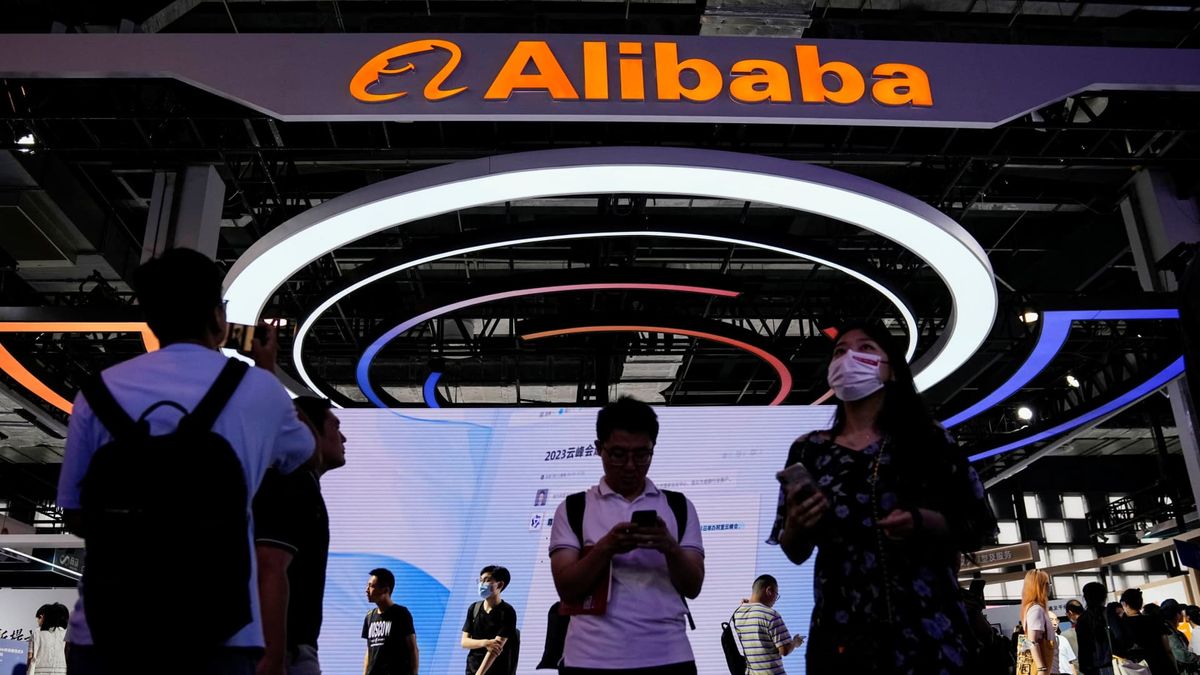A Major Milestone in UAE’s Digital Transformation
Alibaba Cloud, the cloud computing arm of the Chinese technology conglomerate Alibaba Group, has officially inaugurated its second data centre in Dubai, representing a significant milestone in its regional expansion strategy. This launch is part of a US$53 billion investment commitment over three years, aimed at strengthening the UAE’s digital infrastructure, enhancing cloud capabilities, and accelerating the adoption of cutting-edge technologies, including artificial intelligence (AI), big data analytics, blockchain, and the Internet of Things (IoT). The opening of this facility demonstrates both Alibaba Cloud’s confidence in Dubai as a strategic hub and the UAE government’s commitment to fostering a robust technology ecosystem capable of supporting rapid digital transformation across industries.
This expansion aligns seamlessly with Dubai’s broader vision of becoming a leading global technology and innovation hub. By establishing a second facility, Alibaba Cloud ensures that enterprises, startups, and government institutions have access to state-of-the-art cloud computing resources that are scalable, secure, and reliable. These resources are particularly critical for organizations looking to modernize operations, adopt AI-driven solutions, and navigate the increasing digitalization of services in a post-pandemic global economy. Moreover, the expansion reflects Dubai’s strategy to reduce reliance on foreign cloud providers, reinforcing technological sovereignty while positioning the city as a regional center for innovation, enterprise growth, and cross-border digital initiatives
Strategic Importance of the Second Data Centre
The second Dubai data centre significantly enhances Alibaba Cloud’s regional infrastructure, allowing for increased redundancy, higher computing capacity, and strengthened data security. By providing low-latency access and scalable cloud solutions, the facility enables multinational corporations, SMEs, and government agencies to operate seamlessly across borders while maintaining compliance with data sovereignty regulations. This strategic positioning ensures that Dubai can meet the growing demands of a rapidly digitalizing regional market while maintaining high operational resilience.
Beyond redundancy and speed, the centre serves as a critical hub for AI, machine learning, and analytics services, which are essential for industries such as logistics, finance, healthcare, and energy. By providing robust computational resources, businesses can implement complex predictive models, automation systems, and intelligent decision-making tools, driving operational efficiency and competitive advantage. For Dubai, this facility is not merely an infrastructure addition—it is a foundation for building an ecosystem that supports technological innovation, cross-industry collaboration, and regional leadership in digital services.
Driving AI, IoT, and Innovation Across Industries
The Dubai data centre plays a pivotal role in enabling AI, IoT, and other advanced technologies across multiple sectors. For government agencies, the infrastructure facilitates data-driven decision-making in urban planning, traffic management, and public safety, allowing authorities to implement smart solutions that improve citizen services and operational efficiency. Enterprises can leverage the cloud to optimize supply chains, enhance customer experiences, and adopt predictive maintenance models, which are critical for sectors such as logistics and transportation, where operational efficiency directly impacts regional trade competitiveness.
Healthcare stands to gain substantially, with Alibaba Cloud enabling AI-assisted diagnostics, predictive health monitoring, and telemedicine platforms. Hospitals and clinics can use the enhanced infrastructure to process large volumes of patient data, identify trends, and improve treatment outcomes, all while maintaining stringent security and privacy standards. Meanwhile, energy and sustainability projects benefit from IoT-driven smart grids, renewable energy optimization, and water management solutions, supporting Dubai’s goals for a sustainable and technologically advanced urban environment. By integrating AI and IoT capabilities, the UAE is positioning itself as a regional leader in smart city initiatives, where digital technologies drive economic growth, social impact, and environmental sustainability simultaneously.
Empowering Startups and the Innovation Ecosystem
The second data centre is a game-changer for Dubai’s rapidly growing startup ecosystem. Startups now gain access to enterprise-grade cloud infrastructure, advanced analytics, and AI tools that were previously financially and technically inaccessible. This access allows young companies to prototype, test, and scale AI-driven applications, fintech platforms, healthtech solutions, and SaaS products, accelerating their path to market while maintaining operational efficiency.
In addition, the data centre supports Dubai’s strategy of attracting foreign investment and international partnerships in the technology sector. Startups benefit from reduced latency, compliance with local regulations, and access to Alibaba Cloud’s global ecosystem, which facilitates regional expansion and entry into international markets. This ecosystem approach not only nurtures entrepreneurship but also strengthens Dubai’s reputation as a regional hub for innovation, collaboration, and technology-driven growth, attracting global talent, venture capital, and strategic partners.
Economic Impact and Workforce Development
Alibaba Cloud’s $53 billion investment has far-reaching economic implications for the UAE. Beyond supporting businesses and startups, the initiative is expected to create high-value employment opportunities in cloud computing, cybersecurity, AI, data analytics, and software development. These jobs contribute to the UAE’s goal of building a knowledge-based economy, diversifying its income streams beyond oil and gas, and positioning the country as a technology-first economy in the Middle East.
The facility also facilitates workforce development initiatives, including collaboration with universities, vocational training programs, and professional certifications. These programs aim to equip local talent with critical skills in cloud architecture, AI, cybersecurity, and data management, ensuring a pipeline of highly skilled professionals capable of sustaining the UAE’s ambitious digital economy. By fostering local expertise, Dubai strengthens its human capital base, reduces dependency on foreign talent, and positions itself as a regional hub for innovation-driven employment.
Regional and Geopolitical Significance
Alibaba Cloud’s expansion in Dubai carries strategic regional significance, enhancing the UAE’s standing as a digital hub for the MENA region. The country now serves as a gateway for enterprises seeking advanced cloud solutions across the Gulf Cooperation Council (GCC), North Africa, and South Asia. By providing reliable, secure, and scalable cloud infrastructure, the UAE strengthens its position as a preferred destination for regional and international technology investments.
From a geopolitical perspective, the investment demonstrates the UAE’s technological sovereignty, reducing reliance on external providers while ensuring business continuity for sensitive industries such as finance, healthcare, and government. It also positions Dubai as a strategic partner for global technology initiatives, attracting multinational corporations and international partnerships that drive innovation and economic growth.
Global Context: Alibaba Cloud’s Middle East Strategy
The UAE launch forms a key part of Alibaba Cloud’s broader Middle East strategy, which targets the region’s rapidly expanding cloud computing market. The second Dubai data centre strengthens Alibaba Cloud’s ability to compete with global leaders such as Amazon Web Services, Microsoft Azure, and Google Cloud while offering enterprise-grade solutions tailored to local and regional needs.
The centre facilitates multi-region redundancy, disaster recovery, hybrid cloud deployments, and advanced AI services, providing a competitive edge for businesses looking for operational resilience and scalable infrastructure. Additionally, it positions Dubai as a regional hub for AI, cloud computing, and digital transformation initiatives, fostering innovation and technological leadership across multiple sectors.
Future Outlook and Technology Impact
Looking ahead, the second data centre is expected to accelerate AI adoption, cloud-based digital transformation, and smart city projects across the UAE and the broader MENA region. It will also support the development of emerging technologies such as edge computing, 5G applications, blockchain solutions, and IoT networks, enabling enterprises and government bodies to deploy smarter, faster, and more data-driven services.
Moreover, the data centre creates opportunities for regional collaboration, cross-border projects, and innovation programs, positioning Dubai as a hub for advanced technology and entrepreneurial activity. This expansion ensures the UAE continues to lead the Middle East in digital infrastructure, cloud adoption, and AI innovation, reinforcing Dubai’s global reputation as a smart city and technological epicenter.
Conclusion
The launch of Alibaba Cloud’s second data centre in Dubai represents a landmark achievement for the UAE’s technology and digital transformation agenda. By strengthening cloud infrastructure, supporting AI-driven innovation, and empowering startups, the initiative reinforces Dubai’s position as a regional hub for innovation, digital services, and technological excellence.
The US$53 billion investment commitment reflects a long-term vision for a knowledge-based, innovation-driven economy, where cloud computing, AI, and digital entrepreneurship form the backbone of sustainable economic growth. As Dubai continues to invest in advanced technology and digital infrastructure, the city is poised to lead the Middle East in cloud computing, AI adoption, and smart city initiatives, setting a global benchmark for technology-driven urban and economic transformation.
Related Blogs : https://arabworldleaders.com/







